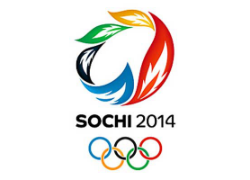In 2008, the International Olympic Committee was widely criticized for allowing China to showcase Beijing while not adequately addressing human rights concerns. Five years later, the IOC is now embroiled in another human rights situation, as Sochi, Russia, will host the 2014 winter Olympics. The 2014 Sochi Olympics have been criticized for a number of human rights issues, including passing laws that discriminate against the LGBT community. Have the IOC and its main sponsors learned anything from 2008 or are they repeating the same mistakes?

In 2013, Vladimir Putin has signed multiple bills into the law that discriminate against the LGBT community. These include laws that prevent the adoption of Russian children by gay couples or individuals. Another law allows police to arrest tourists and foreign nationals who are suspected of being gay or for being “pro-gay.” Furthermore, a law has been passed that categorized any gay propaganda as pornography. These discriminatory laws have created an international backlash. There have been a number of protests, including bars not serving Russian vodka.
The second Fundamental Principle of Olympism includes “the preservation of human dignity.” The IOC has tried responding to the outrage and protests over these laws. After these laws were passed, the IOC reiterated their commitment to ensuring that the 2014 Olympics were free from discrimination. In October, 2013, the IOC president received assurances from Putin that athletes and visitors to the games will not be affected by these laws.
In addition to dealing with the government of Russia, Human Rights Watch has also pressed Olympic sponsors about the human rights concerns within Russia. Human Rights Watch wrote to the top sponsors of the Olympic games, including Coca-Cola, General Electric, and McDonald’s, to ask them to take steps to help alleviate these abuses. While several of the corporations responded, none have been willing to actively speak out against the abuses. Human Rights Watch highlights that these corporate sponsors have failed to take active steps to reverse the negative human rights situation in Russia.
It appears that the IOC and the major Olympic sponsors have failed to learn any lessons from the 2008 games. Once again they have failed to live up to the Olympic Charter and continue to showcase a country that is violating its citizens’ human rights. While the IOC has received assurances that surround the games, this does nothing to protect the individuals that have to live in Russia after the games. Russia’s sports minister stated that the law was not a mistake, but the timing of the law was a mistake. While individuals in and around the games may be free from anti-gay laws for three weeks in February, the IOC and its sponsors have again failed to take action to prevent human rights abuses in a country that it is willing to highlight for three weeks.
Wesley Fry is a 3L and Editor-in-Chief of the Denver Journal of International Law and Policy

